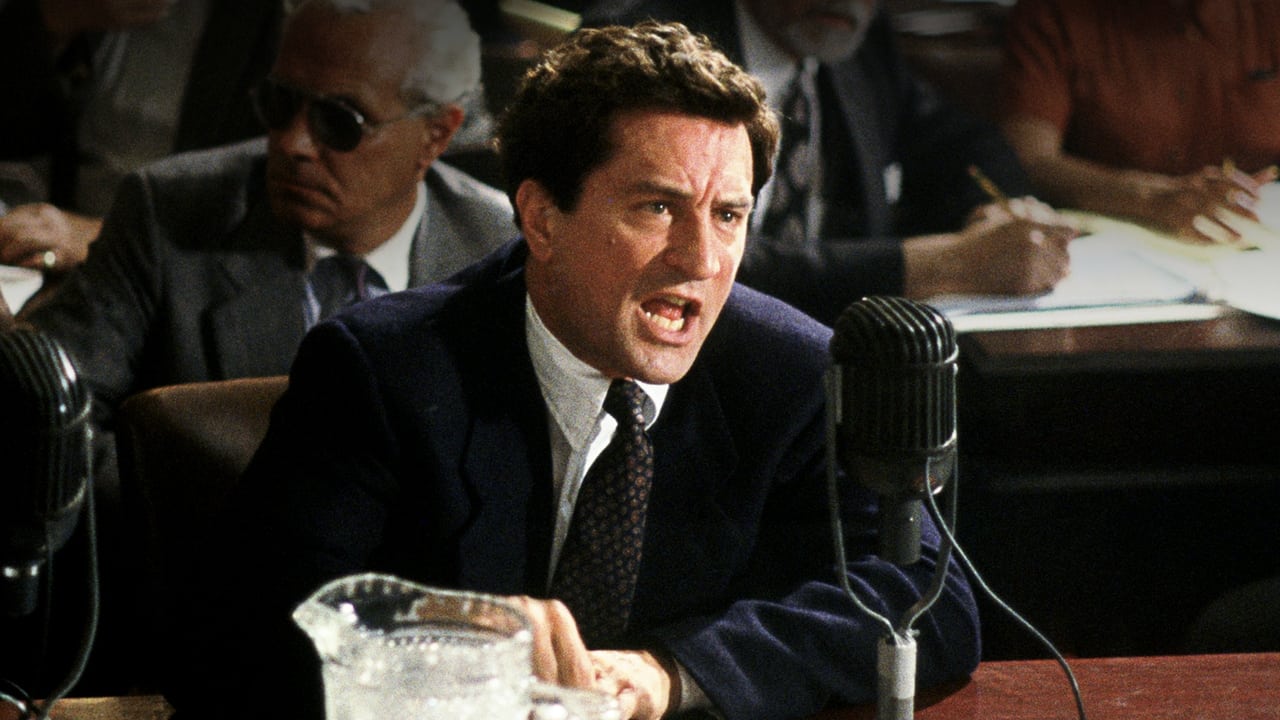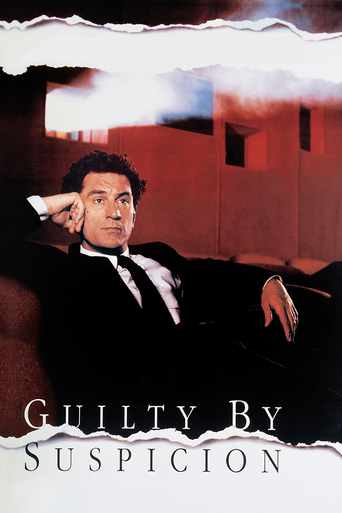

What a waste of my time!!!
... View MoreIt's funny watching the elements come together in this complicated scam. On one hand, the set-up isn't quite as complex as it seems, but there's an easy sense of fun in every exchange.
... View MoreInstead, you get a movie that's enjoyable enough, but leaves you feeling like it could have been much, much more.
... View MoreWhile it doesn't offer any answers, it both thrills and makes you think.
... View MoreA little background to the film's time period may be helpful. It's 1951. Communist Chinese forces have pushed US-led UN forces back to the Korean border between North and South. Meanwhile Soviet troops occupy much of Europe following WWII, while Soviet scientists explode the first A-bomb outside the US. Thus, anxiety grips much of America as fears of losing the Cold War heats up. So, what are our congressional politicians doing to reverse the tide. That's a question many of the time were understandably asking. In short, the country's temperature is rising.For one thing, our guardians are zeroing in on high profile Hollywood where many Reds and their sympathizers are known to reside. After all, didn't much of the film industry support aid to America's WWII ally the Soviets. Plus, much union organizing of actors and crews before the War were led by known communists. Thus, studio moneymen had no liking for anti-capitalists wherever they resided. In short, such a background made the oncoming wave of industry blacklisting much easier. This is not a movie for everyone since the story zeros in on that single time period and the effects of the blacklist on one man, movie director Merrill (DeNiro). Nonetheless, for those with a liking for human interest and/or that crucial time period, the movie's a rare 105-minute eye-opener.Merrill's a highly successful director whose life is torn apart because he refuses to clear himself before HUAC, the congressional committee investigating communist influence in the film industry. Seems Merrill attended some party meetings during the war but never joined. Now he's being called forth to name names of those who also attended. As a result, they too can then be investigated and possibly lose their livelihoods, friends, and family. A principled man, Merrill refuses to cooperate, which means being blacklisted by the studios and a loss of assets including his ex-wife's (Bening) and son's house and home. In short, acting on conscience is costing him dearly, but can he continue to refuse as his life collapses around him. That's the crux of the plot. And it's not just a conflict between principle and success since his wife and child are also suffering because of his persistent refusal.Within limits, the movie's very well done. DeNiro refuses to go over-the-top in a role that could have easily done so. Still, for all the movie's assets-- especially a willingness to draw in a broad range of show-biz functionaries-- one crucial compromise occurs that colors the rest. In short, Merrill is made a liberal rather than a communist or even an ex-communist. Thus, deeper, more intractable, conflicts of a political and ethical nature are avoided. After all, if he were even just an ex-red, then questions could arise about his patriotic support for the war in Korea or how he might politically color the films he works on. Then too, the film avoids the highly charged Cold War atmosphere of the time, such that the basic conflict appears to involve only show-biz and overly ambitious politicos. Thus, a crucial concession is made that helps turn the upshot into a 1950's-type happy ending. That may please some audiences but still amounts to a key drawback in the movie's overall slice of historical reality. Nonetheless, director-writer Winkler's film reveals a great deal about how the highly charged period affected lives among even the most significant of Hollywood movie-makers. More importantly, it's one that should cause viewers to dig deeper into the over-arching issues raised there.
... View MoreGuilty by Suspicion is a film that was based on the Hollywood blacklist and associated activities stemming from McCarthyism and the House Un-American Activities Committee. It stars Robert De Niro and Annette Bening together with George Wendt,Sam Wanamaker and Martin Scorsese. In the story,David Merrill is a film director of the 1950's who is facing the end of his career after he was being accused of being a communist at a time when Hollywood intends to blacklist them.He then suffers a crisis in morality if he only implicates colleagues as Communist agents during this rise of McCarthyism and the Red Scare.He must decide whether to turn informant, or to stick to principle at the cost of his life's work.This film was written and directed by Irwin Winkler.Robert De Niro definitely does a great in his acting performance as Merrill.Also,the film provides a realistic depiction of McCarthyism and the Red Scare that occurred during the 50's in Hollywood.Also,it provides us a great lesson to become true to ourselves and to our conscience as it could become the best service that we can provide anywhere particularly for our country.It is one film that will definitely teach us this lesson.No doubt about it.
... View MoreThe anti-Communist witch-hunts of the late 1940s will always be a dark chapter in American history, but this heavy-handed melodrama offers no insight into any of the causes or consequences. Robert De Niro (in a role any lesser actor could have played just as well) stars as a Hollywood film director declared persona non grata for his refusal to name names before the House Committee on Un-American Activities, but his blacklisting looks more like a blessing in disguise: curing his workaholic habits and reuniting him with his wife and son. The biggest problem with producer-turned-director Irwin Winkler's skin-deep screenplay is an unfortunate tendency toward soap opera histrionics, with most of the plot revolving around dramatic suicides, drunken tantrums, and one of De Niro's trademark rip-the-phone-off-the wall-and-throw-it-across-the-room scenes. The climactic hearing is just an excuse for some politically correct soapbox grandstanding, and of course there's a rolling moral before the end credits, always a tacit admission that a film has failed to communicate its message elsewhere.
... View MoreKazan named LOTS of names at the HUAC hearings.The screen-writer,, Mr. Abraham Polonsky, took his name off the credit list---he said,this was about 'communists', not lib's But,JERKS, like McCarthy,and BIGGER JERK, Roy Cohn;put all in the same category-'guilty by association'. We don't seem to learn much from history, do we? Mr. 'P', also,wrote, "Force of Evil", which was just on TCM 09/07/10. John Garfield starred-GREAT movie noir!---In real life,Mr. Garfield-Julius Garfinkel, also, refused to give up names. In Ida Lupino's biography, and the documentary by his daughter, there is quite an legitimate argument that this is true. He died of heart-attack at age 39. The speech given by Mr. DeNiro's character is almost verbatim of speech given by Lawrence Walsh before McCarthy. "At Long last, have you no decency...."
... View More